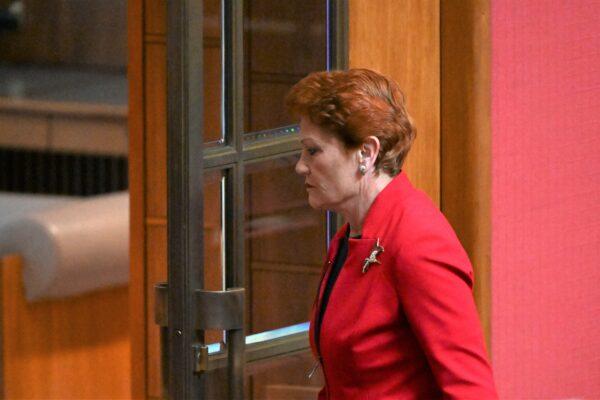The Australian senate has blocked an inquiry into the rise in Australian children being diagnosed with gender dysphoria and treated with puberty blockers and cross-sex hormones.
The result saw 39 senators voting against the inquiry, including all members from the centre-left Labor party and left-wing Greens, four Liberal senators including Simon Birmingham, Marise Payne, Andrew Bragg, and Dean Smith, and Independent senator David Pocock.
Meanwhile, 21 senators who voted yes were from the centre-right Liberal party, Nationals party, One Nation, United Australia Party and Country Liberal Party.
“There are really difficult and complex situations that young people are navigating, and they need access to the full range of support. If they are accessing those services, good on them,” she said.
“I think the responsibility of the federal government is to make sure that the service system is there and that young person and their families are able to use them if they need to in a whole range of healthcare circumstances.”
Details About The Inquiry
The inquiry, introduced by One Nation Party founder Pauline Hanson, sought to investigate the use of puberty blockers in Australia with particular reference to:- The causes of the increase in the rapid onset of gender dysphoria in children such as friendship groups, gender clinic staff and social media
- The experiences of young people who have been prescribed puberty blockers
- The experiences of parents of young people prescribed puberty blockers
- The medical oversight of general practitioners prescribing puberty blockers
- The results of longitudinal studies of young people prescribed puberty blockers
- Whether puberty blockers are reversible
- Whether affirming gender dysphoria as a primary condition is always helpful in the absence of investigating prior mental illness conditions.

Meanwhile, the number of young people having cross-sex hormones went up from 27 in 2014 to 204 in 2021.
“It’s only logical to examine what is driving the sharp rise in gender dysphoria diagnoses and treatments over such a short time,” she said.
“I recently met with some parents whose families are being torn apart over this issue and whose children are being treated without their consent. These children are really struggling with the life-long implications of these treatments.”
She argued that contrary to the claims of many proponents about puberty-blocking and cross-sex hormone treatments, “there is clear clinical evidence the effects of these treatments are not fully reversible.”
Hanson further noted that the evidence indicates potentially negative impacts of cross-sex hormone treatments on brain development and possibly increased risks of hypertension, cardiovascular disease, obesity, high cholesterol and type-2 diabetes.
There is also rising concern among mental health experts about the influence of gender ideology, amplified by social media and manifested in the gender affirmation approach on young people facing these issues, she added.
New Research Challenges Claim That Access to Puberty Blockers Prevents Youth Suicides
In June, a New Heritage Foundation research showed that access to puberty blockers and cross-sex hormones does not reduce youth suicide rates.This challenges a key argument that such access to gender transition drugs saves lives.

“Policymakers and parents are essentially being emotionally blackmailed with the threat that if they don’t make these drugs widely and readily available, young people will kill themselves,” Greene told The Epoch Times. “And this short circuits all other kinds of discussions and considerations because it’s such a horrific thing. No one wants to be responsible for that.”
The analysis measured suicide rates in the age group between 12 and 23—the age range of recipients of gender transition drugs—in two state groups: 33 states plus D.C. requiring parental consent for minors to undergo routine medical care and 17 states that don’t require approval from parents.
The two groups didn’t show a difference in their youth suicide rates before 2010, when the use of puberty blockers and cross-sex hormones became more commonly available in the United States. However, between 2010 and 2020, the group of states with no limit on access showed 14 percent higher youth suicide rates than those with access restrictions.





Friends Read Free